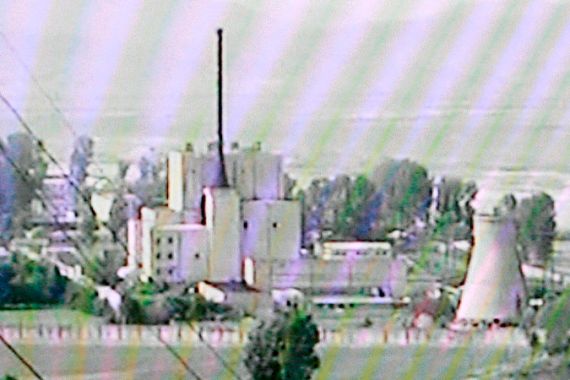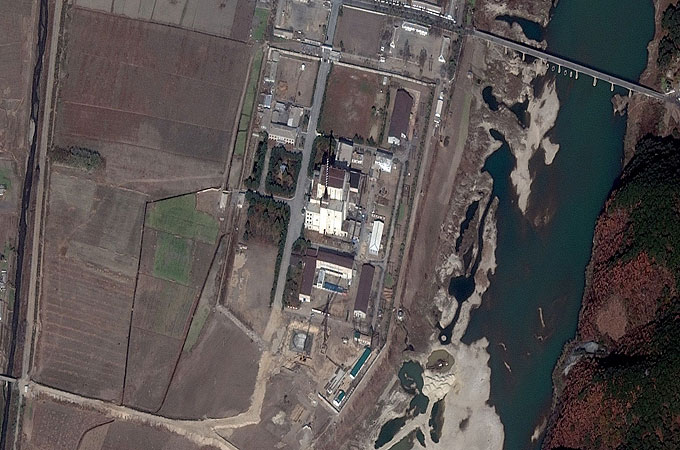US angered by N Korea nuclear claim
US accuses Pyongyang of flouting international sanctions and seeking to destabilise region amid claims of a new reactor.

 |
| Reports of a new North Korean uranium enrichment plant has raised fresh concerns in the US [Reuters/DigitalGlobe] |
The United States says claims by North Korea of a new uranium enrichment plant and reports of sophisticated centrifuges have raised new concerns over its nuclear weapons programme.
The US special envoy for North Korea said on Monday that Pyongyang’s claim of a secret new uranium enrichment facility is provocative and disappointing but not a crisis or a surprise.
Keep reading
list of 4 itemsTurtles swimming to extinction in Malaysia as male hatchlings feel heat
Could shipping containers be the answer to Ghana’s housing crisis?
Thousands protest against over-tourism in Spain’s Canary Islands
Stephen Bosworth’s comments, following a meeting with South Korea’s foreign minister, Kim Sung-hwan, came as the United States and the North’s neighbours scrambled to come to terms with Pyongyang’s revelation to a visiting American nuclear scientist of what has been described as 2,000 recently completed centrifuges.
“This is obviously a disappointing announcement. It is also another in a series of provocative moves” by North Korea, Bosworth said.
“That being said, this is not a crisis. We are not surprised by this. We have been watching and analysing the (North’s) aspirations to produce enriched uranium for some time.”
A top US military official in interviews with the US media on Sunday said North Korea has consistently denied any enriching of uranium.
“This [report] validates a long-standing concern that we’ve had with respect to North Korea and its enrichment of uranium,” Admiral Mike Mullen, the chairman of the Joint Chiefs of Staff, said.
“The assumption certainly is, that they continue to head in the direction of additional nuclear weapons. And they’re also known to proliferate this technology. So they’re a very dangerous country.
“All of this is consistent with belligerent behaviour and the kind of instability creation in a part of the world that is very dangerous,” Mullen added.
Robert Gates, the US defence secretary, said on a visit to Bolivia that he believed the North has had an ongoing nuclear power programme “for a long time” and that “an enrichment plant like this, assuming that is what it is, obviously gives them the potential to create a number more”.
“North Korea has ignored a number of Security Council resolutions. They continually try to export weapons. So the notion they have developed this, is obviously a concern,” Gates said, adding that if the reactor is for civilian nuclear power “then they should welcome the IAEA”, the UN nuclear agency.
‘Military potential’
Siegfried Hecker of Stanford University revealed on Saturday that he had toured a modern, new uranium enrichment plant equipped with at least 1,000 centrifuges on November 12 at the Yongbyon nuclear complex.
|
“It is possible that Pyonyang’s latest moves are directed primarily at eventually generating much-needed electricity. Yet, the military potential of uranium enrichment technology is serious” Siegfried Hecker, nuclear scientist, Stanford University |
Hecker in a report published on Saturday described the small, industrial-scale facility “stunning”, adding he was told it was already producing low-grade uranium, although there was no way to confirm if the plant was fully operational.
“It is possible that Pyonyang’s latest moves are directed primarily at eventually generating much-needed electricity,” he wrote. “Yet, the military potential of uranium enrichment technology is serious.”
“Instead of seeing a few small cascades of centrifuges, which I believed to exist in North Korea, we saw a modern, clean centrifuge plant of more than a thousand centrifuges all neatly aligned and plumbed below us.”
Hecker said his guides told him there were in fact 2,000 centrifuges which were already producing low-grade enriched uranium to help fuel a nuclear power reactor, and insisted it was for a civilian nuclear electricity programme.
He added that North Korean scientists told him that construction work on the facility, dubbed the “Uranium Enrichment Workshop”, started in April 2009 – the same month that Pyongyang withdrew from the six-party talks – and was completed just a few days ago.
North Korea quit the aid-for-disarmament talks in April 2009 and staged its second atomic weapons test a month later. The talks group the two Koreas, the US, China, Russia and Japan.
In recent months Pyongyang has expressed some willingness to return to the six-party talks.
Some US officials suggest that Pyongyang may have decided to show off its new facilities hoping to win US concessions if the talks resume.